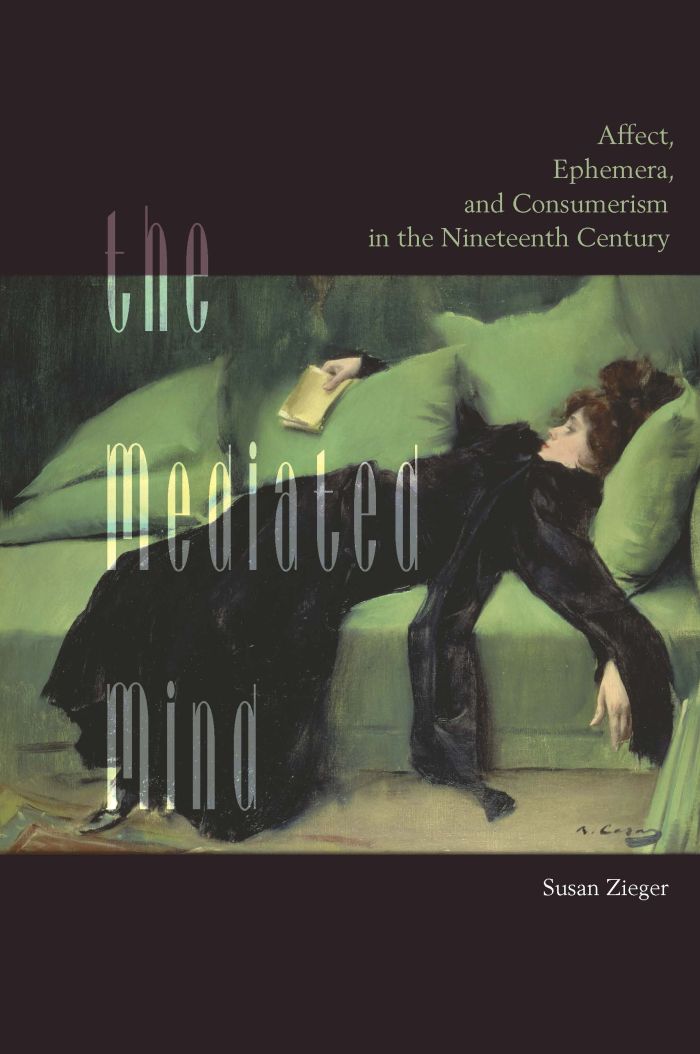The Mediated Mind
Affect, Ephemera, and Consumerism in the Nineteenth Century

This book can be opened with

An astoundingly rich and wonderfully diverse account of the experience of mass media in Britain at the end of the nineteenth century. The Mediated Mind provocatively and sensitively expands the very notion of mass media beyond the audio-visual parameters in which it is conventionally considered and explores the varied ways in which print and printed ephemera shapes nineteenth-century British culture.—John Lurz, Tufts University
Zieger's notion of "the mediated mind" is not the flattened, homogenized mentality often implied by discussions of mass communications; she documents and explores these changes with far more detail and finesse than an informal commentary can convey.—Inside Higher Ed
At first glance, our culture’s consumption of mass media—with our twenty-four-hour news cycle, social media, and love of iPhones—may not seem to have much in common with the nineteenth century. Susan Zieger’s The Mediated Mind: Affect, Ephemera, and Consumerism in the Nineteenth Century, however, argues otherwise. By examining the close relationship between consumers and goods in nineteenth-century Britain, Zieger presents ephemeral items and the conversations they sparked as prefigurations of twenty-first century forms of mass media.—Victorian Periodicals Review
Zieger’s brilliant analysis of ink’s centrality to globalization raises parallel questions about the planetary roots and routes of other resources featured in this study as underwriting the new scale of mass mediation, such as the tobacco that provided the dreamy smoke screen for seductions of information, or the paper that supplied the transition from pipes to cigarettes... Like so many stimulants, it is tremendously satisfying while waking the reader’s mind to seek more.—Victorian Studies
Introduction: From Paper to Pixel
1. Temperate Media: Ephemera and Performance in the Making of Mass Culture
2. Tobacco Papers, Holmes’ Pipe, and Information Addiction
3. Ink, Mass Culture, and the Unconscious
4. “Dreaming True”: Playback, Immediacy, and “Du Maurierness"
5. “A Form of Reverie, A Malady of Dreaming: Dorian Gray and Mass Culture”
Conclusion: Unknown Publics
Acknowledgments
Notes
Index

